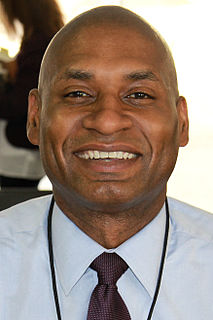A Quote by Charles M. Blow
I'm trying to illuminate how perilously narrow we draw the concepts of masculinity and sexuality in our male culture.
Related Quotes
I think women don't see themselves and their sexuality as wholesome. And yet men's sexuality is everywhere. We experience it as a culture in stadiums, thousands of raging fans of male sexuality, screaming, "Kick the ball over the goal post. Get the ball in the hoop. Score a home run." Male sexuality lives in that prowess of the scoring, of conquering, of getting, of that beautiful male energy of domination, aggression, and the competition.
The Most Secret Quintessence of Life is an original work filled with rich, new research, relying on important primary literature which has not, until now, been plumbed and digested. In this book, Chandak Sengoopta offers both a history of hormone discovery and a chronicle of how this discovery transformed our concepts of the body and how our existing concepts of sex and sexuality, in turn, informed our concepts for understanding hormones.
When women's sexuality is imagined to be passive or "dirty," it also means that men's sexuality is automatically positioned as aggressive and right-no matter what form it takes. And when one of the conditions of masculinity, a concept that is already so fragile in men's minds, is that men dissociate from women and prove their manliness through aggression, we're encouraging a culture of violence and sexuality that's detrimental to both men and women.
What we men share is the experience of having been raised by women in a culture that stopped our fathers from being close enough to teach us how to be men, in a world in which men were discouraged from talking about our masculinity and questioning its roots and its mystique, in a world that glorified masculinity and gave us impossibly unachievable myths of masculine heroics, but no domestic models to teach us how to do it.
Our socialism does not include extreme materialistic concepts, since Indonesia is primarily a God-fearing, God-loving nation. Our socialism is a mixture. We draw political equality from the American Declaration of Independence. We draw spiritual equality from Islam and Christianity. We draw scientific equality from Marx.
The bonding of women that is woman-loving, or Gyn/affection, is very different from male bonding. Male bonding has been the glue of male dominance. It has been based upon recognition of the difference men see between themselves and women, and is a form of the behaviour, masculinity, that creates and maintains male power… Male comradeship/bonding depends upon energy drained from women.
As a guy develops and practices his masculinity, he is accompanied by an invisible male chorus of all the other guys, who hiss orcheer as he attempts to approximate the masculine ideal, who push him to sacrifice more of his humanity for the sake of his masculinity, and who ridicule him when he holds back. The chorus is made up of all the guy's comrades and rivals, his buddies and bosses, his male ancestors and his male cultural heroes--and above all, his father, who may have been a real person in his life, or may have existed only as the myth of the man who got away.






























